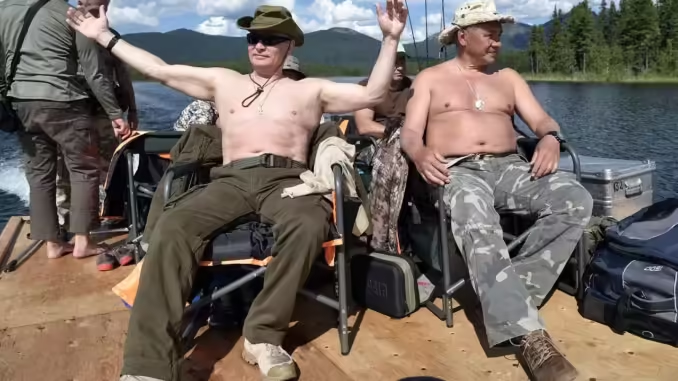
Russian President Vladimir Putin has replaced Sergei Shoigu as the country’s defense minister, appointing economist Andrey Belousov to the position. Shoigu, who has been in the role since 2012, will now lead Russia’s national security council.
This significant shake-up in Putin’s national security team comes more than two years into Russia’s military offensive in Ukraine. Belousov’s appointment is seen as an effort to integrate the military-industrial complex into the economy.
In line with Russian law, the entire Russian Cabinet resigned Tuesday following Putin’s glittering inauguration in the Kremlin, and most members have been widely expected to keep their jobs, while Shoigu’s fate had appeared uncertain.
Putin signed a decree on Sunday appointing Shoigu as secretary of Russia’s Security Council, the Kremlin said. The appointment was announced shortly after Putin proposed Andrei Belousov to become the country’s defense minister in place of Shoigu.
The announcement of Shoigu’s new role came as 13 people were reported dead and 20 more wounded in Russia’s border city of Belgorod, where a section of a residential building collapsed after what Russian officials said was Ukrainian shelling.
Belousov’s candidacy will need to be approved by Russia’s upper house in parliament, the Federation Council. It reported Sunday that Putin introduced proposals for other Cabinet positions as well but Shoigu is the only minister on that list who is being replaced. Several other new candidates for federal ministers were proposed Saturday by Prime Minister Mikhail Mishustin, reappointed by Putin on Friday.
Shoigu’s deputy, Timur Ivanov, was arrested last month on bribery charges and was ordered to remain in custody pending an official investigation. The arrest of Ivanov was widely interpreted as an attack on Shoigu and a possible precursor of his dismissal, despite his close personal ties with Putin.
Kremlin spokesman Dmitry Peskov said Sunday that Putin had decided to give the defense minister role to a civilian because the ministry should be “open to innovation and cutting-edge ideas.” He also said the increasing defense budget “must fit into the country’s wider economy,” and Belousov, who until recently served as the first deputy prime minister, is the right fit for the job.
Belousov, 65, held leading positions in the finances and economic department of the prime minister’s office and the Ministry of Economic Development. In 2013, he was appointed an adviser to Putin and seven years later, in January 2020, he became first deputy prime minister.
Peskov assured that the reshuffle will not affect “the military aspect,” which “has always been the prerogative of the Chief of General Staff,” and Gen. Valery Gerasimov, who currently serves in this position, will continue his work.

Tatiana Stanovaya, a senior fellow at the Carnegie Russia Eurasia Center, said in an online commentary that Shoigu’s new appointment to Russia’s Security Council showed that the Russian leader viewed the institution as “a reservoir” for his “‘former’ key figures — people who he can’t in any way let go, but doesn’t have a place for.”
Figures such as former Russian President Dmitry Medvedev have also been appointed to the security council. Medvedev has served as the body’s deputy chairman since 2020.
Shoigu was appointed to the Security Council instead of Nikolai Patrushev, Putin’s long-term ally. Peskov said Sunday that Patrushev is taking on another role, and promised to reveal details in the coming days.
Shoigu has been widely seen as a key figure in Putin’s decision to send Russian troops into Ukraine. Russia had expected the operation to quickly overwhelm Ukraine’s much smaller and less-equipped army and for Ukrainians to broadly welcome Russian troops.
Instead, the conflict galvanized Ukraine to mount an intense defense, dealing the Russian army humiliating blows, including the retreat from an attempt to take the capital, Kyiv, and a counteroffensive that drove Moscow’s forces out of the Kharkiv region.
Before he was named defense minister in 2012, Shoigu spent more than 20 years directing markedly different work: In 1991, he was appointed head of the Russian Rescue Corps disaster-response agency, which eventually became the Ministry of Emergency Situations. He became highly visible in the post. The job also allowed him to be named a general even though he had no military service behind him as the rescue corps absorbed the militarized Civil Defense Troops.
© 2024, GDC. © GDC and www.globaldefensecorp.com. Unauthorized use and/or duplication of this material without express and written permission from this site’s author and/or owner is strictly prohibited. Excerpts and links may be used, provided that full and clear credit is given to www.globaldefensecorp.com with appropriate and specific direction to the original content.






Be the first to comment